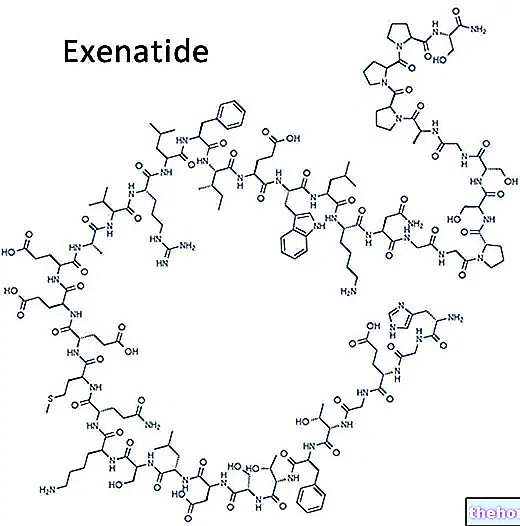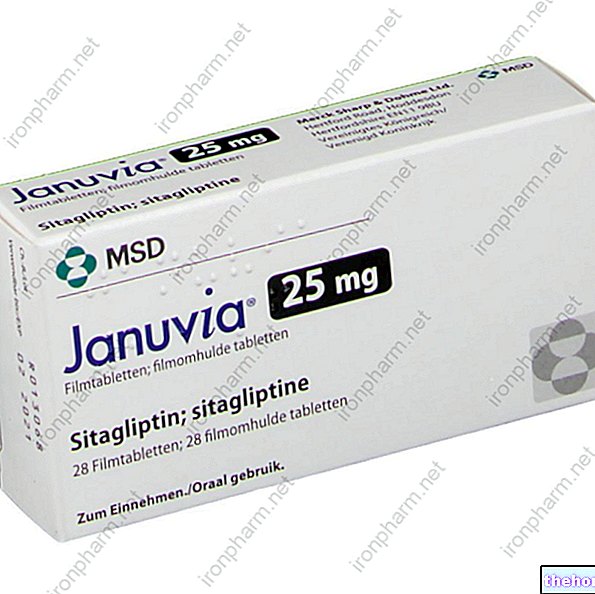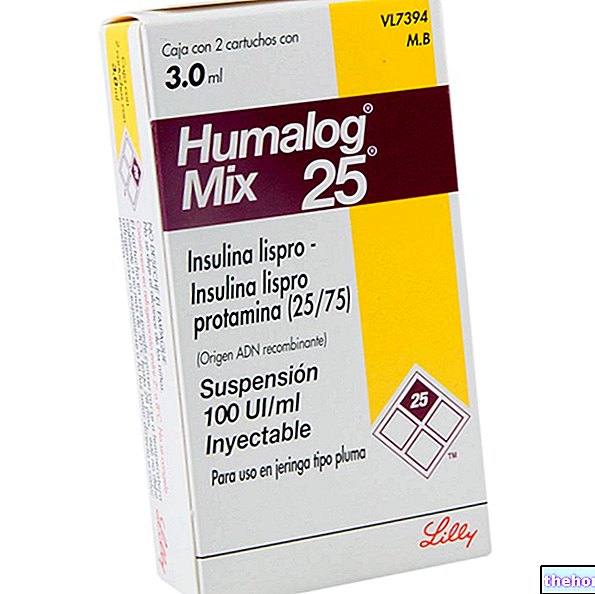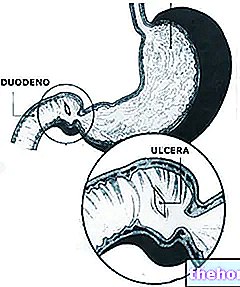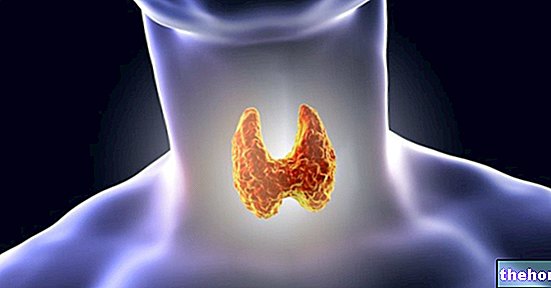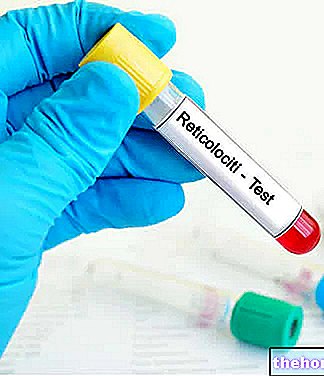GLICOBASE ® is a drug based on Acarbose
THERAPEUTIC GROUP: Oral antidiabetics

Indications GLICOBASE ® - Acarbose
GLICOBASE ® is used as a pharmacological aid to the dietary plan in patients with type II diabetes mellitus, and in combined therapy with insulin in the treatment of first type diabetic patients.
Mechanism of action GLICOBASE ® - Acarbose
Acarbose is a molecule of bacterial derivation which, thanks to its saccharide-like structure, can act selectively in the intestine, reducing the activity of enzymes such as alpha glycosidases, involved in the normal digestion of di and polysaccharides derived from the diet.
The inhibition of these enzymes therefore reduces the availability and absorption of glucose, making the post-prandial glycemic increase gradual and modest and thus exerting its antidiabetic action, essentially modulating the post-prandial glucose metabolism.
The reduced systemic absorption of this active principle makes GLICOBASE ® safe from a pharmacokinetic point of view, guaranteeing its active principle a selective action at the level of the intestinal environment and a subsequent elimination through the faeces.
Studies carried out and clinical efficacy
1. ACARBOSIS AND CARDIO VASCULAR COMPLICATIONS
Curr Drug Metab. 2009 Feb; 10: 159-63.
Clinical utility of acarbose, an alpha-glucosidase inhibitor in cardiometabolic disorders.
Yamagishi S, Matsui T, Ueda S, Fukami K, Okuda S.
Among the main complications of type II diabetes is the condition of macroangiopathy, predisposing to the development of the atherosclerotic condition and associated cardiovascular diseases. Diabetic and overweight patients are certainly the category most at risk, for which pharmacological and non-pharmacological therapy becomes necessary for the preventive action. Acarbose is a particularly suitable drug for the treatment of this condition, given its effectiveness both from a metabolic point of view, in keeping post-prandial glycaemia under control, and preventive, in reducing the risk of developing cardiovascular diseases.
2. INHIBITORS OF ALPHA-GLUCOSIDASE, NO LONGER "ONLY ACARBOSE
Bioorg Med Chem Lett. 2008 Jul 1; 18: 3711-5. Epub 2008 May 20.
Discovery and biological evaluation of novel alpha-glucosidase inhibitors with in vivo antidiabetic effect.
Park H, Hwang KY, Kim YH, Oh KH, Lee JY, Kim K.
Given the particular success that acarbose has met above all in the treatment of conditions such as prediabetes, predisposing to overt disease, scientific research has focused on the design of new alpha-glucosidase inhibitors, which can be used as an alternative to acarbose. Although there are still no alternative products on the market, research has identified substances capable of exerting an inhibitory action of the alpha-glucosidase of as much as 70%, for which a clinical implication is expected.
3. ACARBOSIS AND HYPERURICEMIA
Int J Clin Pharmacol Ther. 2008 Apr; 46: 187-92.
Acarbose alleviates rise in plasma uric acid concentration induced by sucrose ingestion.
Moriwaki Y, Kobayashi T, Inokuchi T, Yamamoto A, Takahashi S, Ka T, Tsutsumi Z, Yamamoto T.
Hyperuricemia is a particularly dangerous condition, as it predisposes to inflammatory diseases such as gout. Leaving aside the possible genetic causes, several studies support the role of sucrose in reducing renal excretion of uric acid, increasing its plasma concentration. In light of these data, taking acarbose for two weeks concomitantly with sucrose inhibited the serum increase in uric acid by inhibiting its reabsorption.
Method of use and dosage
GLICOBASE ® 100 mg coated tablets of acarbose: the initial dosage should include the intake of ½ tablet 3 times a day in conjunction with the first bites of the meal, and then vary according to the glycemic levels and the specific needs of the patient.
It is therefore the doctor who must establish the correct dosage of the drug based on the therapeutic standards and the physio-pathological conditions of the patient.
GLICOBASE ® warnings - Acarbose
The pharmacological approach with GLICOBASE ®, especially in patients with type II diabetes mellitus, should necessarily be combined with a correct lifestyle and eating habits that control the intake of carbohydrates and saturated fats.
Both the intake and the suspension of acarbose therapy should take place under strict medical supervision and with periodic monitoring of the patient's glycemic values, in order to avoid metabolic imbalances, responsible for the development of hyperglycemic or hypoglycemic conditions, especially when associated with hypoglycemic agents.
Although acarbose as such is not associated with the risk of hypoglycaemia, it is important to consider that, in case of concomitant use of hypoglycemic drugs, the potential hypoglycaemia could make the use of machinery and driving of vehicles dangerous.
PREGNANCY AND BREASTFEEDING
GLICOBASE ® is contraindicated in pregnancy and lactation, given the absence of studies characterizing the safety profile of acarbose for the health of the unborn child and infant.
In the case of diabetes gravidarum, it is therefore important that glycemic control is guaranteed by more studied and characterized drugs such as insulin.
Interactions
The concomitant intake of other hypoglycemic drugs could cause a significant drop in glycemic levels, increasing the risk of hypoglycemia, which is difficult to recover with oral intake of sugar, given the therapeutic effect of GLICOBASE ®
For this reason it is important to constantly monitor glycemic levels and, if necessary, to correct the therapeutic dosage.
It is also important to consider that the accumulation of sugars in the intestinal lumen, following diets rich in carbohydrates, could increase the risk of gastro-intestinal side effects due to increased gas production, following fermentation by the intestinal flora.
Digestive enzymes, intestinal adsorbents and cholestyramine could alter the therapeutic efficacy of GLICOBASE ®
Contraindications GLICOBASE ® - Acarbose
GLICOBASE ® is contraindicated in cases of chronic enteropathies and impaired digestion and absorption, celiac disease, intestinal obstructions or ulcerations and severe renal insufficiency.
The drug is also contraindicated in case of hypersensitivity to the active substance or to one of its excipients and during the period of pregnancy and lactation.
Undesirable Effects - Side Effects
The intake of GLICOBASE ® was found to have no clinically relevant side effects.
In most cases, the adverse reactions involved the gastrointestinal tract with nausea, vomiting, diarrhea and flatulence, while rare were cases of impaired liver function and hypersensitivity to the drug accompanied by dermatological reactions.
Note
GLICOBASE ® can only be sold under medical prescription.
The information on GLICOBASE ® - Acarbosio published on this page may be out of date or incomplete. For a correct use of this information, see the Disclaimer and useful information page.

